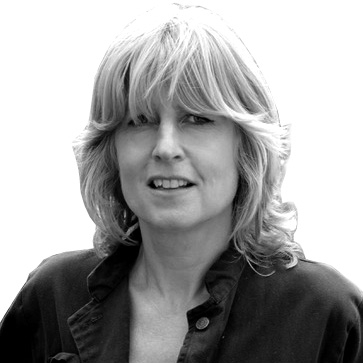Germany is another country. They do things differently there (mostly sans clothes, not just culottes).
But before I bare all: Brenners Park-Hotel & Spa, the grandest hotel in the grandest spa town in Europe, has reopened after an expensive and painstaking renovation. It’s a destination hotel in a destination town.
And it’s not just the vitrines piled with kuchen—cakes and sweet desserts—it’s the density of World Heritage sites: the opera, or Festspielhaus; the Kurhaus (a convention center); and seven museums, including one dedicated to Fabergé. Every few yards there is a statue dedicated to one of the writers or composers who summered here.

Baden-Baden has always attracted a finer class of talent to the Lichtental—the so-called green salon, with lawns, shrubbery, and an arboretum. (One exception was the memorably named “bitch invasion,” during the World Cup tournament in 2006. It was the era of peak WAG—wives and girlfriends of soccer players—and Victoria Beckham and her compatriots partied, shopped, and showed skin with abandon as the world looked on in horror and admiration.)
The composer Johannes Brahms followed his lifelong friend, concert pianist Clara Schumann, to this rarefied “capitale d’été,” and even bought a house nearby on the Maximilianstrasse.

Baden-Baden also held an irresistible attraction to 19th-century Russians, who seemed to prefer the game tables to their writing desks. Leo Tolstoy lost his shirt at the casino Marlene Dietrich called “the most beautiful in the world,” and he had to scrounge off Ivan Turgenev to pay back the house. Fyodor Dostoyevsky had to pawn his wife’s wedding ring to pay off his gambling debts, a humiliation Turgenev memorialized in Smoke, a roman à clef for which he chose the name “Roulettenberg” for Baden-Baden. Nikolay Gogol and Anton Chekhov came, too. Badeblatt, the local newspaper, noted of all the whiskered Russian men of letters: “No other nation can beat them in terms of politeness, good taste, elegance and liberal views.”
Back to Brenners, which reopened last month. This hotel has hosted the Victorias—the Queen and Beckham—Walt Disney, Lillian Gish, and Henry Ford. It’s now in the tender hands of the Oetker family (who made their fortune in baking powder and frozen pizza) and is one of the many jewels in their hospitality crown, which also includes Le Bristol, in Paris, and the Hôtel du Cap-Eden-Roc, in Cap d’Antibes.

My restful, book-lined suite had a balcony and leafy view over the Lichtenthal and the burbling River Oos. I perused my schedule while eating a mini–Black Forest gâteau with some berries so fresh and sweet they tasted as if they were picked that morning. What will it be? Museums, a backstage tour of the opera house, tennis, afternoon tea, a full-body scan and vitamin infusion at the hotel’s medical spa, or perhaps a hike through the Black Forest?

When in Rome—and the emperor Caracalla took the waters here for his various ailments—surely it’s best to do as the Romans do. My body had recently been seared, as if on a hot griddle, by the stings of red, livid jellyfish during a dip in the Mediterranean Sea. I visited the Brenners physician, Dr. Harry König, who put me on cortisone and antihistamine injections. But could Baden-Baden’s sulfurous thermal waters cure me, as they did for Mark Twain, who claimed he’d left his rheumatism behind when he went back to America?
So on my second day at Brenners, I headed off-property to the Friedrichsbad, the magnificent bathhouse built as a consolation prize after the German government officially banned gambling in 1872. With domes, sculptures, and painted majolica tiles, it is the St. Peter’s Basilica of bathhouses, the Vatican of the worldwide religion of spa.

As we bought tickets, the woman at the front desk barked, “You know this is naked, yes?” My friend Gianluca and I nodded. “You must put all the cloth-es”—she made two syllables out of the word—“into the locker, yes?”

A few minutes later, Gianluca and I had removed every stitch and were standing buck naked, apart from our blue plastic wristbands, sucking in our stomachs.
We entered the first of the rooms for our three-minute shower before we began the ritual, designed to warm the body and cool it down again, and for the next hour or so, we rinsed and basted and marinated in thermal spring water that bubbled up from the Florentinerberg hill.
As Twain said of his visit, “You lose track of time after 10 minutes and lose track of the world after 20.” It took me only 10 minutes to forget I was naked—even though a Scot from Edinburgh recognized me in the pool.

I lolled under domes; floated lazily in bubbling water; and padded through rooms where naked bodies lay on beds like corpses on morticians’ slabs. How to describe an experience, an activity, where all you need is your naked self?
It was like birth and death combined, one of the very few experiences that can return us to the amniotic, hypnotic suspension of the mother’s womb and remind us that we are all human and equal at the same time—however over- or underserved by the various fairies—and this was one of them. Unforgettable. Even for the Scot, I fear.

Bill Clinton once said that Baden-Baden is “so nice they named it twice,” and I couldn’t put it better. Go to Baden-Baden, and stay at Brenners—if you don’t love it as much as I did, I will pawn my own wedding ring to give you your money back.
The writer was a guest of Brenners Park-Hotel & Spa, where rates start at $800 per night, including breakfast
Rachel Johnson is a journalist and author. Her books include The Mummy Diaries, Notting Hell, and Rake’s Progress: The Madcap True Tale of My Political Midlife Crisis


